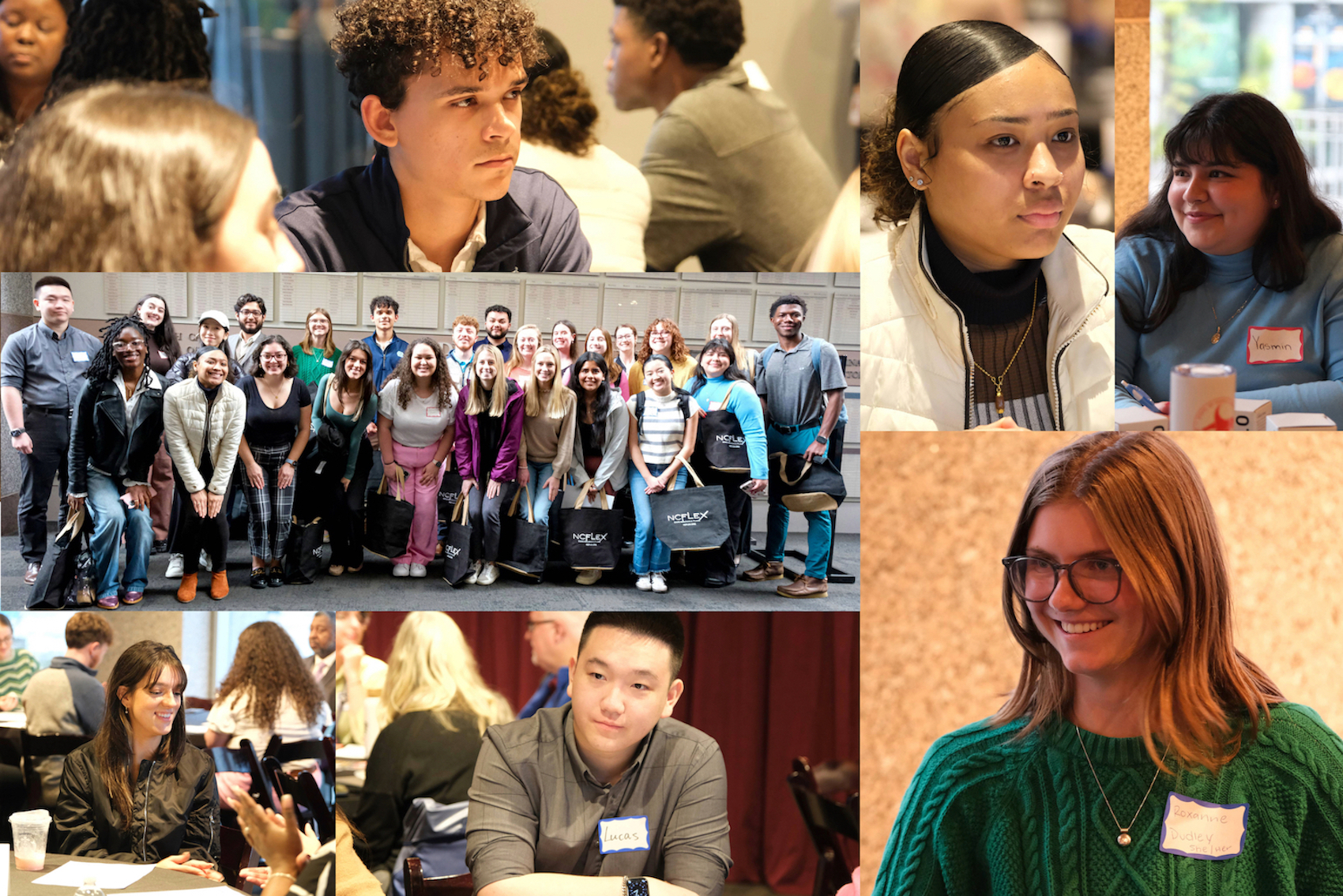Challenge and opportunity
The renaming of Saunders Hall and a look back over the first 10 years of Carolina Performing Arts were among the issues UNC-Chapel Hill trustees discussed in their March meeting.
Chancellor Carol L. Folt came to Carolina because, she said, “I wanted to be part of something bigger than myself” at a place with a long and rich history.
Twenty months later, she told University Board of Trustees on Thursday, that wish has come true in ways she could not have imagined.
It has been, she said, a time of challenge and opportunity, a time to both make history and reconcile with it; to build on past successes even as the University sought to acknowledge and rectify grievous errors.

Chancellor Carol L. Folt speaks during the March 26 meeting of the Board of Trustees.
More than anything, it has been a time to listen to each other with open minds and hearts.
That spirit of openness was exemplified the day before when students crowded into a conference room with all the members of the University Board of Trustees to talk about a building named for a man who had once led the Ku Klux Klan.
“It was wonderful because it was filled with passion and courage and eloquence and heartfelt thoughts,” Folt said.
She added, “We did not accomplish an end yesterday, but we stepped across the starting line and we did it together.”
Board of Trustees Chair Lowry Caudill said he was pleased with the tenor and substance of that discussion as well.
“As we have stressed previously, we are not solely focused on a single building or a single person in history,” Caudill said.
Any solution, he said, “must be based on the larger context of how we should acknowledge the history of our university, our state and our nation. We are optimistic we will have a well-crafted, comprehensive solution at our May meeting.”
As the second academic year of her tenure comes to a close, Folt reflected on the challenges that the University has faced. Tough decisions had to be made “with the eye of the world upon us.”

A Resolution of Appreciation for Student Body President Andrew Powell is presented during the March 26 meeting of the Board of Trustees.
No decision was tougher, Folt said, than the one she and UNC President Tom Ross made in January 2014 to hire an independent investigator to get to the bottom of academic and athletic irregularities that had shaken the University – and its national reputation – to its core.
Folt said the University got exactly what it asked for – and needed: a complete and thorough investigation over which neither she nor Ross had any control.
That was a hard road to take, she said, but it was the right road because it has allowed the University to move forward.
At the same time, Folt said she has assembled a new leadership team that includes new vice chancellors of finance; information technology; human resources; development; and communications and public affairs.
She also added a new position to the team –vice chancellor for commercialization and economic development – to ensure the University translates more of its world-class ideas into real-world applications that benefit both society and the economy.
“We decided to take strategic risks and try some things because we knew we couldn’t afford to stand still,” Folt said.
Under the leadership of Board of Trustees’ member Sallie Shuping-Russell, the University launched the Carolina Research Fund in January to help University startup companies overcome funding gaps.
“My goal is to build an even stronger foundation for our future as a world-class public university,” Folt said, which will help stimulate North Carolina’s economyin the process.

String quartet Brooklyn Ride, performs for the Board of Trustees on March 26.
The University has also concentrated on improving the experience of Carolina students – from military veterans returning from war to making the campus a safer and more welcoming place for all.
Recently, the University hired a student veteran assistant coordinator to provide day-to-day support for more than 700 military-affiliated undergraduates and graduate students.
Folt said she has talked at forums across the country to explain what Carolina is doing to address the issues of sexual assault, such as the task force led by Christi Hurt, the director of the Carolina’s Women’s Center, to improve the way the University responds to student-on-student reports of discrimination, harassment, sexual misconduct, stalking and interpersonal violence.
The group sought cross-campus collaboration and input to make recommendations for an updated policy on sexual assault that remains a work in progress, Folt said.
On March 23, the University hosted the first “Carolina Conversations,” a new initiative that allows students to come together to have meaningful, productive discussions about important issues like race and sexual assault, Folt said.
Having these kinds of open conversations, Folt said, is the best way for the University to learn, listen and heal. Folt said she was struck by an exchange between a white and African-American student.
“The white student said, ‘Why are we here if we are not going to come up with solutions?’ And the black student said, ‘You and I are talking for the very first time. That’s why we are here.’”
There are many reasons to be proud of the University in the way it has come together to grapple with so many issues. What should be included on that list, she said, is that “we havebecome better listeners.”
Updated April 2, 2015




